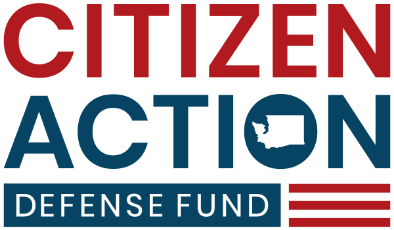
It was fun while it lasted!! With our Legislature adjourned sine die for the year and our vaunted Legislariat fanned out across the Evergreen, the lawmaking process continues in earnest in and around Olympia. For the lawmakers themselves, however, the summer’s social calendar is no doubt replete with waffle breakfasts, rubber-chicken dinners, and a host of other gladhanding events designed to “soft” gauge voter—and donor—sentiment. It is an important time, to be sure, but for all its glitz and “glamor,” the so-called “rubber-chicken circuit” is not where its at. For political junkies desperate for a policy-laden fix, the summer and fall—especially in a nonelection year—at first glance appear quite Spartan. Turning to local news or the political blogosphere, much of the focus returns to the national stage—a rich soap opera in its own right, but lacking in that quirky, uniquely Evergreen, touch. There simply is not enough salmon and grizzly talk from the other Washington to satisfy this Washingtonian’s need for Pacific Northwestern speed.
In the last few months, CADF’s litigation schedule had my and my colleagues’ firing on all cylinders—unfortunately leaving you, dear reader, with a somewhat scattershot coverage of in-state political happenings as they happened. But our return to regular musings comes a few weeks too late. Still, as hinted, the legislative “off-season” hardly means a break in policy and politics. While our legislators gladhand constituents at the kaleidoscope of county fairs, farmers’ markets, concerts, craft shows, little leagues, ribbon-cuttings—and even a lentil festival in Pullman—remember that not everyone is having fun scarfing down chunky, leguminous soup beneath a scorching Pacific Northwest sun.
In Olympia, the executive branch, legislative staff members, industry advocates, and other stakeholders are hard at work putting the last session’s agenda into action, and preparing for the inevitable battles ahead. What shape will these battles take? Much of this depends on what the lawmakers glean from constituents as they make the local rounds. Polling, too, continues to play a vital—if in recent years diminished—role. National politics also hold great influence over the direction of next season’s in-state political battles. Whatever the precise admixture into which these diverse factors ultimately coagulate, at least one thing remains constant—the policy fight itself.
Still, the scope and magnitude of off-season policymaking has evolved drastically over the decades. According to the Legislature’s official history, as late as the 1970s “[t]here simply was no interim activity except an occasional study or investigation.” Fast-forward to 2025, and take housing policy as a stark example. Disco era lawmakers and their staff never would have dedicated the time and energy their modern counterparts have—and continue to undertake—in the wake of the “Year of Housing 2.0,” as some have called it. With statewide rent control now in effect—mostly for worse—all interested are gearing up for the battles ahead. Lawsuits are a near guarantee—amply warranted, in my humble opinion (having studied housing law and policy for years). And so stakeholders on both sides—inside and outside the halls of the Capitol Building—are gearing up for a fight, which no doubt will spill over into the 2026 legislative session, with a key pro-ADU bill—finally, a good idea on the housing-policy front, having failed to gain traction last session. Due, in no small measure, to the intervention of the not-in-my-backyard crowd at the Association of Washington Cities. Notably, Governor Ferguson has muddied these waters by vetoing a bill that would have commissioned a study on the primary causes for ever-rising homeownership and rental costs. Thanks, Bob!! Either way, the “Year of Housing 2.0” ensures that both pro-rent-hike and pro-property forces will use the off-season jockeying to build legislative support, which means a lot of homework for legislative staff while their bosses are (mostly) out and about, trying to figure out how to vote despite their teams’ educated findings.
And so it goes in any contentious policy area—which, for better or worse, these days seem to be every policy area. By session’s end, the “scoreboard” has one side of each debate “up” a hit or two. But, to mix metaphors, the game (read: battle) continues apace—albeit in a less forward-facing regard. The “off-season” is more the doldrum mid-innings. The teams are still at it, but the audience is starting to tune out and the announcers are getting groggy. But to those diehards in the crowd, I humbly implore you this summer to follow Courts & Committees with great interest. Through our “Off-Season Report” series, we will be keeping tabs on how things are shaping up for the battles—or ballgames—ahead. Because, to quote the inimitable Robert Penn Warren, “if anything is certain, it is that no story is ever over, for the story which we think is over is only a chapter in a story which will not be over, and it isn’t the game that is over, it is just an inning, and that game has a lot more than nine innings. When the game stops it will be called on account of darkness. But it is a long day.”
Alki,
Sam Spiegelman

